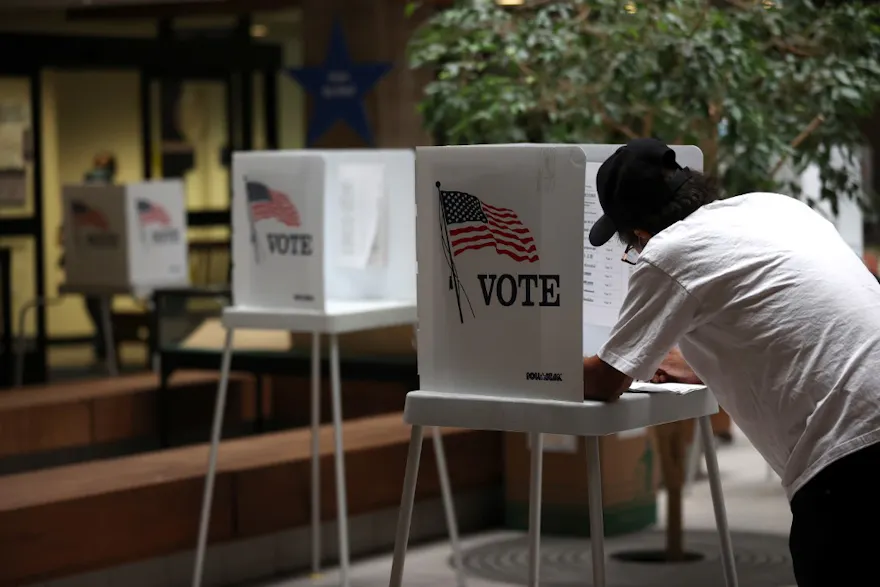A Look at 3 States With Legal Sport Betting on the November 3 Election Ballot

Election Day 2020 in the United States will serve as one of the most consequential decisions Americans make in a generation. Some US citizens will be voting on more than just who will serve as their President for the next 4 years, they will also get a chance to have a say on whether or not legal sports betting is a good fit for their state.
Since the 2018 Supreme Court decision to overturn the Professional and Amateur Sports Protection Act, 21 states plus Washington DC, have brought on their own form of legal sports betting platform. Those jurisdictions have been reaping the benefits since, in the form of infrastructure projects and industrial jobs, as well as immense tax revenue for state and local coffers.
Six more states will get their say on welcoming, or not welcoming a platform on November 3. Louisiana, Maryland, Nebraska, North Dakota, Colorado, and Virginia have all posed a question of viability for their state and included them on the Election ballot. Here is a peek into the chances for 3 of the 6.
Louisiana
Let's just say that it is complicated in Louisiana. There are 64 parishes in the state that will each have their own say on the viability of legal sports betting in their jurisdiction. Louisiana already has a thriving riverboat, land-based casino, and horse racing wagering culture that doesn't include sports betting.
Two years ago, a similar question on DFS services in the state was posed - it was eventually bogged down when 17 of the 64 parishes said "No" to the platform. It has led to a murky attempt to draw up rules and regulations for each of the "Yes" parishes instead of a clean, easy state-wide mandate. DFS to this day hasn’t been deemed legal in Louisiana.
It is reasonable to expect a similar outcome to the DFS question of 2018 when most approved the platform but due to the lack of a unanimous consensus, it is stuck in the mud. Experts have said that legal sports betting in Louisiana could bring up to $300 million to the state in additional tax dollars, but unless some agreement among parishes is gained, then a drawn-out and complicated process will likely slow and potentially keep stalling the process altogether.
Maryland
Maryland is another state with legal sports betting on the ballot. They too have a lot to gain or a lot to lose.
Maryland is in an interesting position in that most of its neighbors already have legal sports betting. As it stands, its citizens are spending wagering dollars overseas or in those neighboring states, something that legislators hope to change on November 3. Gov. Larry Hogan and state legislators hope to keep betting dollars and the tax revenue it creates in their state to aid with, among other things, the intense impact of COVID-19.
It is a simple “Yes” or “No” vote in Maryland that may or may not give its rabid fanbase the chance to keep wagering revenues within their state lines. Estimates have Maryland gaining between $20 million and $40 million in tax dollars per year from sports betting which is earmarked for public schools.
There is no shortage of opponents for the plan in Maryland, but with what is going on in neighboring states, the "Yes" vote seems to have the edge.
Nebraska
The state of Nebraska will also get their say on a potential legal sports betting platform on the November 3 ballot. Currently, there are six licensed race tracks in Nebraska but no casinos. A "Yes" vote on Election Day would start the process of legal sports betting and mark the first time in 15 years that Nebraskans had their say on legal casinos in the state.
Just like the other states considering bringing in their own form of sports betting, money, namely tax revenue has been cited as the main motivation. It is estimated that legal sports betting could bring in north of $65 million in much-needed tax revenue for the state to aid in budgetary shortfalls and property tax relief.
Current figures show that the state of Nebraska is losing $400 million per year in gambling dollars to its neighbor Iowa. Other states around Nebraska are purging more gambling dollars from the state forcing legislators to figure out a way to stem the flow.
There is still a fair amount of opposition to legal sports betting in Nebraska but those in favor are certainly optimistic that their post-November world will include legal sports betting.
If all goes perfect for the legal sports betting industry on November 3, 27 states plus Washington DC could have legal sports betting – amazing growth of an industry that was born in 2018. That said, 27 states will make up just under 50% of the US population. The industry will still be left waiting on California, Texas or Florida get on board – they represent the biggest fish left to join in on the exploding US legal sports betting scene.







